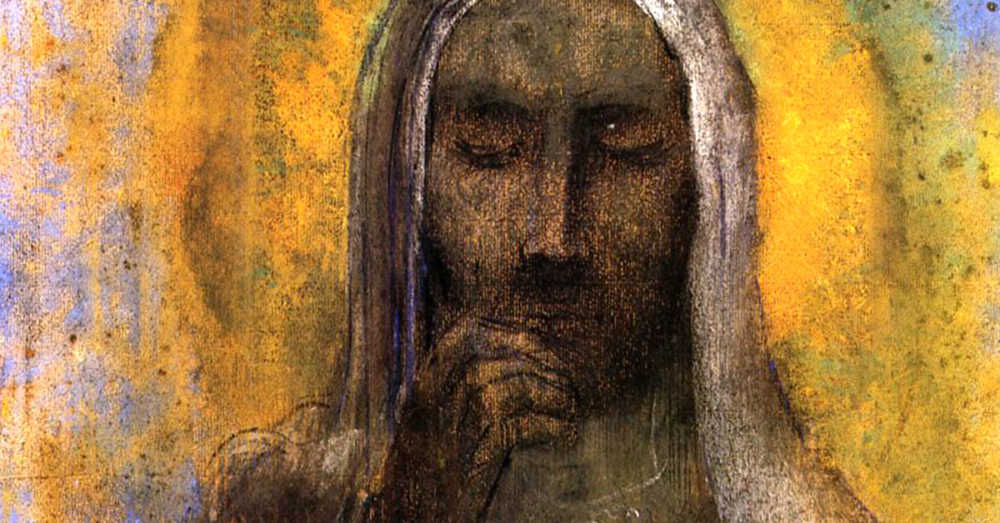We run our website the way we wished the whole internet worked: we provide high quality original content with no ads. We are funded solely by your direct support. Please consider supporting this project.

God’s Dream for the World
The future doesn’t yet exist—which is why it’s future instead of the present or past—this doesn’t mean I’m claiming the future is wide open. To the contrary, it’s very clear from Scripture that God has a great plan for the future, and this plan steers the course of history by setting limits on what can and can’t occur and influencing what comes to pass. God created the world and is now moving it to the fulfillment of a glorious dream.
We see God’s glorious dream expressed in Jesus’ prayer in John 17, which is the most outstanding prayer ever recorded, if you ask me. Jesus prays to the Father on behalf of all who will come to know him (which he hopes will be the whole world) (vss. 20, 23). He further prays to the Father that his followers may be “one…just as you are in me and I am in you” (vs. 21, emphasis added). He then proclaims that he has given us the same “glory” that was given him before the foundation of the world (vs. 22, 24), and he did this so that we may be one, just as he and the Father are one. “I in them and you in me,” he continues, “so that they may be brought to complete unity.”
Clearly, the “glory” Jesus refers to is the glorious loving unity of the triune God. And when his disciples reflect this glory, Jesus says to his heavenly Father, “the world will know that you sent me and have loved them even as you have loved me” (vs. 23, emphasis added). Jesus ends his prayer by telling the Father he will continue to make him known so that “the love you have for me may be in them and that I myself may be in them” (vs. 26).
What a dream! God’s vision for humanity is nothing less than for us to be participants in the perfect love that he is throughout eternity. He wants the love of the Trinity to be the replicated toward us, among us and through us to the whole world. God’s dream is for us to be in him, and he to be in us—in the same way the Father is in the Son and the Son is in the Father. The dream is for humanity to be loved by God, and to in turn love God, with one and the same love that is the eternal triune God.
I’m convinced this is what the Bible means when it says God makes us participants of the divine nature (1 Pet 1:4), for the divine nature is love (1 Jn 4:4). I’m also convinced this is why Paul repeatedly says that believers are placed “in Christ.” We don’t simply relate to God through Christ. We relate to God in Christ. We share in the Father’s relationship to the Son and the Son’s relationship to the Father. When we are saved, you might say, we are pulled into God and are eternally allowed to share in the ecstatic love that he eternally is.
I believe Paul is making the same basic point when he says that all things were created by Christ and for Christ. Christ was always intended to be the head of humanity, his “body,” and the means by which God united the cosmos together (Col. 1:15 -20). This is also why Paul taught that the grace that saves us was “given us in Christ Jesus before the beginning of time” (2 Tim. 1.9) and why Jesus said that the glory he gives to us was given him “before the foundation of the world” (Jn 17:24).
art: “Christ in Silence”
by: Odilon Redon
date: c.1897
Category: General
Tags: Jesus, Love, Trinity, Triune Love, Unity
Topics: Following Jesus
Related Reading

Naturalism and the Historical Jesus
The quest for a “merely human” Jesus The various radical views of Jesus now being advocated by certain scholars and propagated through the press are buttressed by a number of different historical arguments. Some argue, for example, that the evidence from the first century suggests that Jesus was not unique in his healing ministry. Or,…

Absolute Truth and Violence
A common argument today against Christianity is that believing that Jesus (or any other religious figure or religion) is the only way to God (See yesterday’s post) is “dangerous.” This claim actually has some justification, for it is undeniable that most of the butchery carried out throughout history has been done in the name of defending…

Our True Eternal Home
In becoming our sin and bearing the death-consequences of sin, Christ has opened the way for us to participate in the fellowship of the triune God. Because of the cross, we are now free to abide in Christ and to have Christ abide in us (John 15:4-10). The word “abide”(menno) means “to take up residence.”…

Predestination Part 2: Seeing Destiny Rightly
For Part 1, click here. In Ephesians Paul teaches that God “chose us in [Christ] before the creation of the world to be holy and blameless in his sight” (Eph 1:4). In Christ, Paul continues, God “predestined us for adoption to sonship…to the praise of his glorious grace, which he has freely given us in…

The Cross Above All Else
The way to know what a person or people group really believes is not to ask them but to watch them. Christians frequently say, “It’s all about Jesus,” but our actions betray us. Judging by the amount of time, energy, and emotion that many put into fighting a multitude of battles, ranging from the defense…

The Only Thing That Matters Is Love: The Kingdom of God (Part 3)
To say that living in Calvary-quality love is the most important thing in our life is to grossly understate its importance. This stands in distinction from how we typically define the Kingdom of God. But it stands in line with the fact that Jesus is the Kingdom of God. Paul says the “the only thing…
